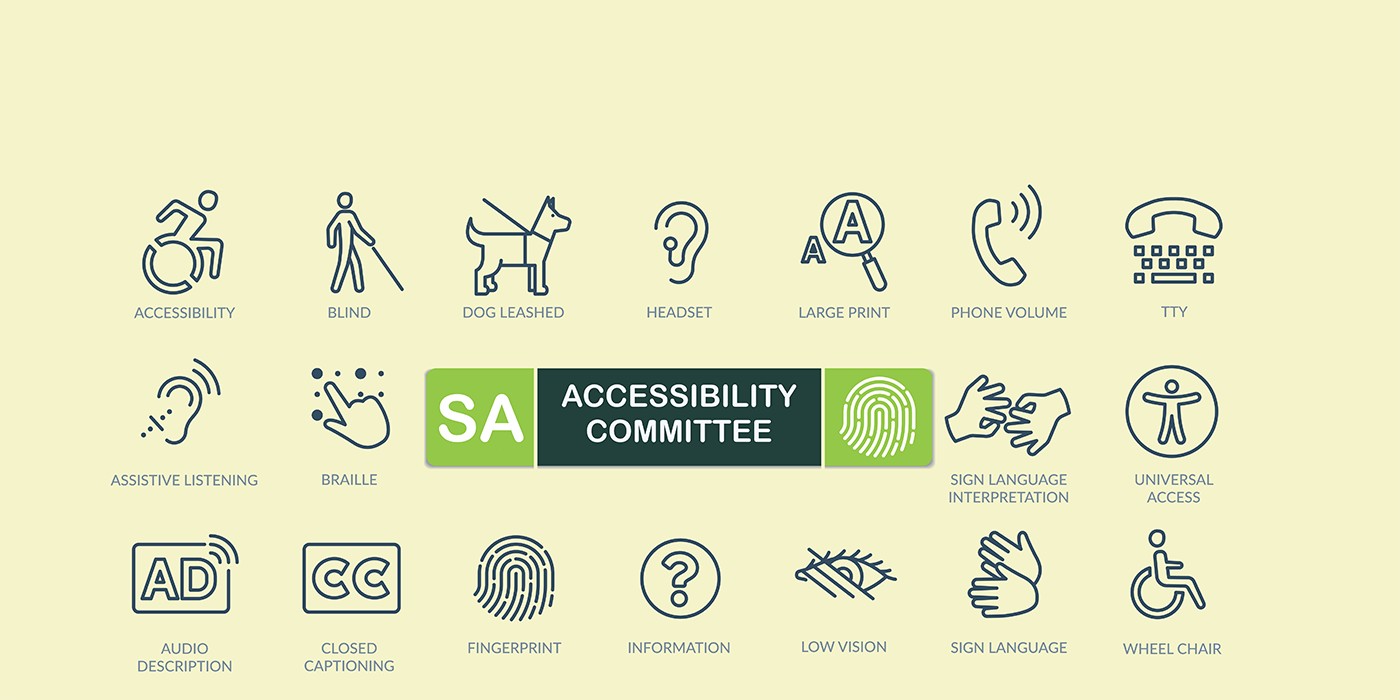
Reading “What makes meetings strong?” in Essay May 2021 got me thinking. For me strong meetings are welcoming places, offering full participation to all members; they provide opportunities for service and they encourage fellowship after meetings. As I see it, strong meetings are not only about the shares, but also about group learning, promoting the actions of love, encouraging anyone who considers him/herself a member to full access to our program and fellowship. This contributes to the unity of the group.
I am a member of our group’s Accessibility Committee. This is a very special committee that supports access to members with physical disabilities. The committee warmly welcomed two members, Pat G. and Tom L., both of whom are helping us to reach out and support other members who have a disability. It has been an honor and a privilege to work with both members.
Pat and Tom have given permission for their shares and their names to be published in the Essay. These shares are so lovingly clear. I hope in this way that their shares help start to create an awareness/sensitivity for our fellow members in groups. This is certainly the case for me, and I have more to learn.
In fellowship and service,
Jackie H., Den Hague, The Netherlands (SD: January 2010)
My name is Tom L., and I am a grateful member of SA. I am also blind. I receive wonderful, natural support in my Home Group, at Intergroup, and when I attend International Conventions in Europe and the US. My needs are met perfectly. I need hardly ask for them.
I use audio. Almost everything is available through audio today. Receiving links to meetings can present difficulties. What works is when I get a text with a link that I can click on.
Having a “service guide” to assist me when attending Committee Meetings – someone who would read documents to me – would be helpful. Also helpful would be the designation at face-to-face conventions of volunteers who would guide me to meetings, to the dining hall, to my room etc.
I have never met a person who doesn’t have a disability of some sort – extreme shyness, a speech stammer, the aches of the aging, difficulty in mastering ever evolving technology. I think it can be helpful to look at disability in a broader sense than just physical disability; fear of technology, inability to keep pace with it, can exclude members especially as they get older.
Tom L., Ireland (SD: 3 Oct 2005)
My name is Pat G. and I am very grateful for SA sobriety. For a very long time, I have been the only deaf person in my Group – I know there are other deaf people that are not ready to be with us. I am very pleased with my Home Group. Having a professional ASL interpreter in a meeting helps tremendously. The English language in the White Book is an older type of English – very difficult to sign exactly what they are hearing so having a professional interpreter in the meeting can spoil me because we have something in common: the understanding of the program language.
When the meeting is over and members are hanging out and talking, I can’t have full accessibility – some will take time to write notes for me. But they have their own kind of language when writing, and oftentimes will say “we will save it for later,” or they may not give it to me, or might not write something I need to do for SA instead of letting me participate in their conversation. I feel left out. For me, meeting after the meeting is difficult in so many ways – this is often the place where we get to learn to know each other better.
I sponsor a deaf Irish member regularly via Skype. Members don’t ask me to become their sponsor in the meeting, hearing people don’t do that – I can’t have an interpreter all the time – how can that happen, financially.
During a face-to-face meeting, we sit in a circle so everyone can see each other – that is really nice. The Interpreter sits opposite me and beside the Chair; sight lines are good. Someone gets up and walks to get a cup of coffee and stands in the way – they don’t realize that they cut off my accessibility – have cut off the communication in terms of my being able to see the interpreter. Those with hearing are visually impaired in the sense that they don’t understand that I am getting all my communication by vision.
There has been significant improvement over the years, increased awareness, people making greater efforts all the time, that is for sure – but I also suggest there are many things that need to be improved.
Pat G., Rochester, NY (SD: 21 Dec 1996)






